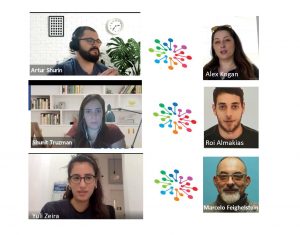Speaker: Prof. Alexander Broadbent (Institute for the Future of Knowledge, University of Johannesburg)
Title: Can robots do epidemiology? Machine learning, causal inference, and predicting the outcomes of public health interventions
Abstract: This paper argues that machine learning (ML) and epidemiology are on collision course over causation. The discipline of epidemiology lays great emphasis on causation, while ML research does not. Some epidemiologists have proposed imposing what amounts to a causal constraint on ML in epidemiology, requiring it either to engage in causal inference or restrict itself to mere projection. We whittle down the issues to the question of whether causal knowledge is necessary for underwriting predictions about the outcomes of public health interventions. While there is great plausibility to the idea that it is, conviction that something is impossible does not by itself motivate a constraint to forbid trying. We disambiguate the possible motivations for such a constraint into definitional, metaphysical, epistemological, and pragmatic considerations, and argue that “Try it and see” is the outcome of each. We then argue that there are positive reasons to try, arising from the possibility of discovering meaningful new concepts of epidemiological and public health importance. Formal causal inference enforces existing classification schema prior to the testing of associational claims (causal or otherwise), but associations and classification schema are more plausibly discovered (rather than tested or justified) in a back-and-forth process of gaining reflective equilibrium. ML instantiates this kind of process, we argue, and thus offers the welcome prospect of uncovering meaningful new concepts in epidemiology and public health—provided it is not causally constrained.
Title: Machine learning for numerical weather prediction
Abstract: The talk outlines how machine learning, and in particular deep learning, could help to improve weather predictions in the coming years and presents an overview of the work on machine learning methods that is ongoing at the European Centre for Medium-Range Weather Forecasts. Weather predictions are based on models of the Earth system — a huge system that consists of many individual components and shows chaotic behavior. For such a system, conventional tools are often struggling to provide satisfying results. On the other hand, a huge amount of data is available from both observations and modelling. Therefore, a large number of machine learning applications are currently tested in order to improve the different components across the workflow of numerical weather predictions. Whether these approaches will succeed is still unclear as there are also a number of challenges for the application of machine learning tools in weather predictions, such as the representation of multiscale atmospheric dynamics.


